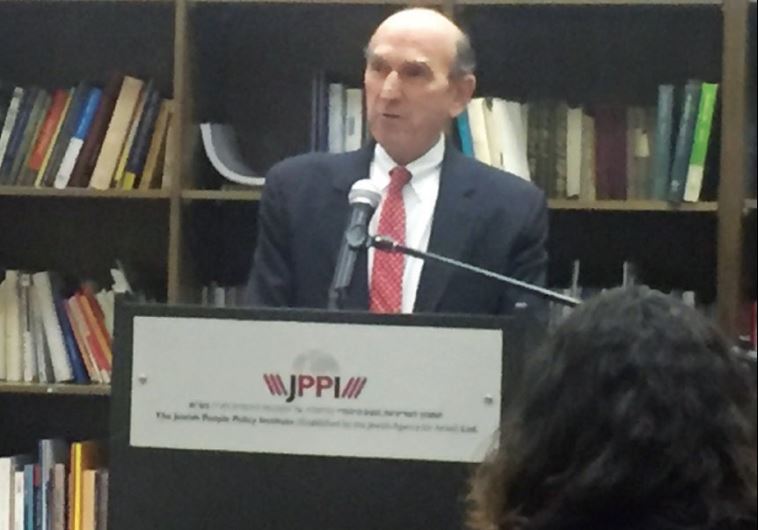Elliott Abrams: US Mideast policy will be more assertive under next president
Former US diplomat chides Obama for Iran deal and abandoning Syrian rebels.
 ELLIOTT ABRAMS speaks at the JPPI Institute in Jerusalem on Monday.(photo credit: SETH J. FRANTZMAN)
ELLIOTT ABRAMS speaks at the JPPI Institute in Jerusalem on Monday.(photo credit: SETH J. FRANTZMAN)